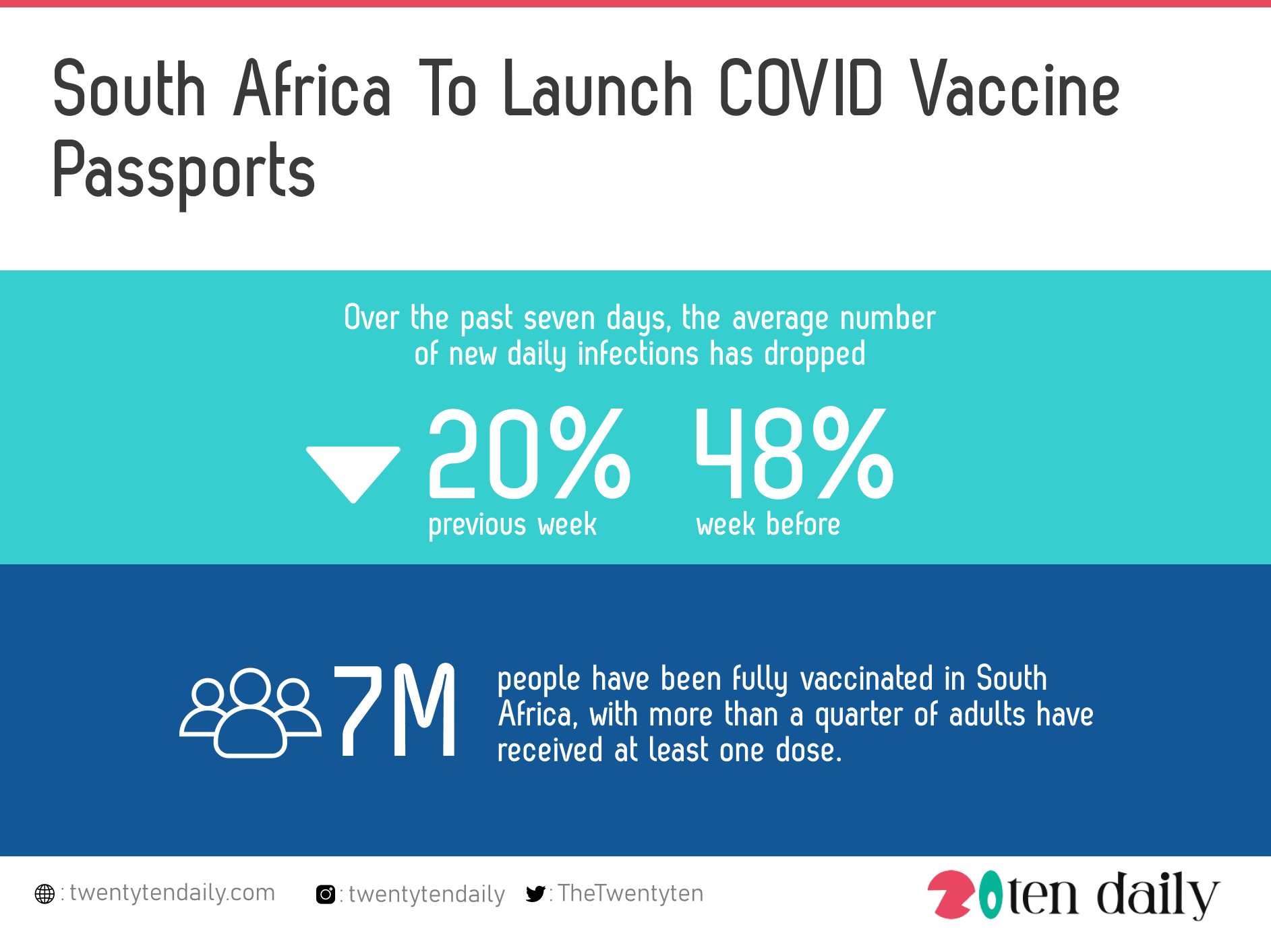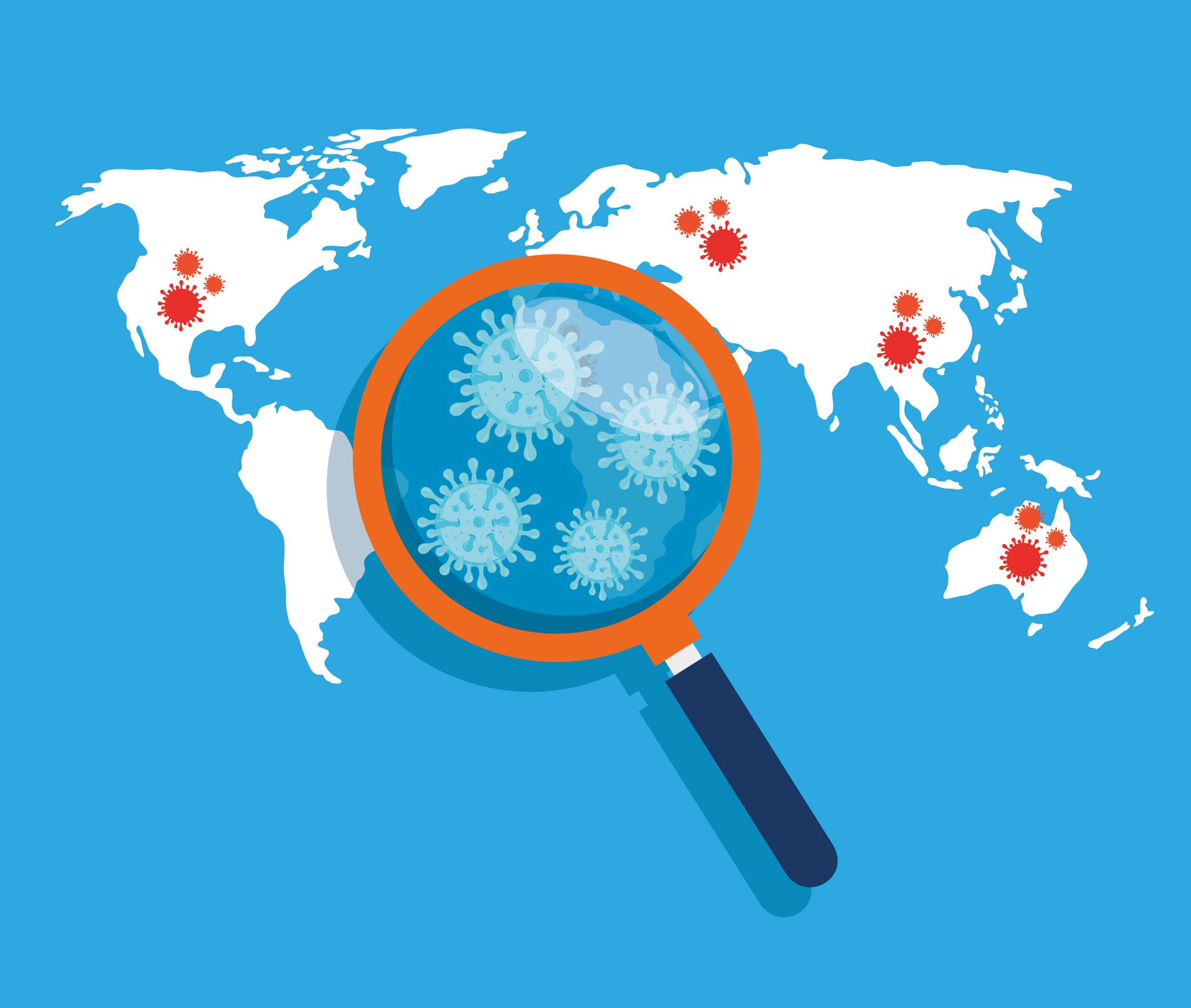South Africa To Launch COVID Vaccine Passports
The South African government has announced the introduction of a “vaccine passport” idea, amid widespread mistrust of the Covid-19 vaccine in the country.
President Cyril Ramaphosa announced on Sunday in a televised address that the passport would serve as proof of vaccination for various purposes and events.
While he promised that more information about the passports would be shared in 2 weeks, government officials speculate that the vaccine passport might be made a requirement for certain events.

Mr Ramaphosa assured that the immunization of the adult population was a necessary prerequisite to fully reopen the economy and avoid a fourth wave of infections, as the number of cases drop sharply in the country.
He added that the “sustained decline in infections (…) over the past few weeks” would, however, allow for a relaxation of the restrictive measures starting Monday.
The nightly curfew will be extended by one hour, to 11 p.m., and the limits on gatherings will be raised.
Restrictions on the sale of alcohol will also be eased, although protective masks will still be required in places open to the public.
The peak of a third stubborn wave due to the Delta variant is now over. Over the past seven days, the average number of new daily infections has dropped 29 percent from the previous week and 48 percent from the week before, Ramaphosa said.
“Our most urgent task is to vaccinate our population,” he said, noting that vaccine supply “is no longer a constraint.”
“If many people are not vaccinated (…) the risk of new and more dangerous variants emerging is much greater,” he warned.
After delays in the supply and distribution of doses, the vaccination campaign is now struggling to take off because of scepticism about the vaccine, especially among men.
To date, just over seven million people have been fully vaccinated in South Africa, with more than a quarter of adults have received at least one dose.
The country’s goal is to vaccinate 40 million South Africans, or about two-thirds of the population, by next March.
Authorities have recorded more than 2.8 million cases of the coronavirus since the start of the pandemic, and 84,877 deaths, making it the worst affected country in Africa by the pandemic.
South African scientists are monitoring a new local variant with an unusually high mutation rate, dubbed C.1.2, although its presence is so far marginal among new cases detected in the country.



